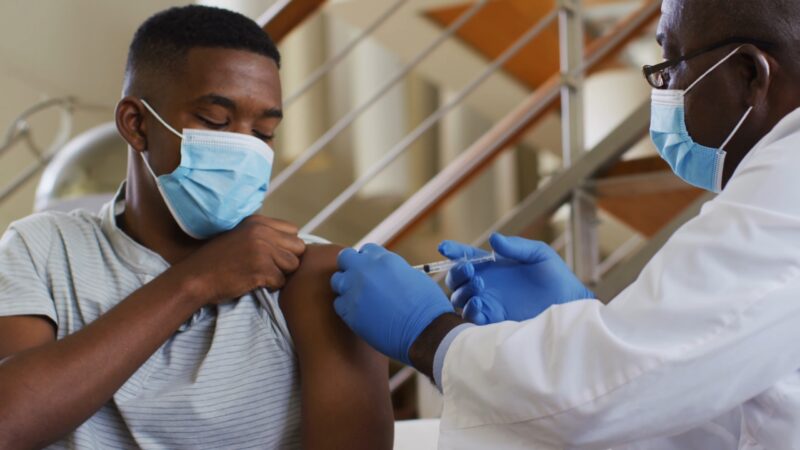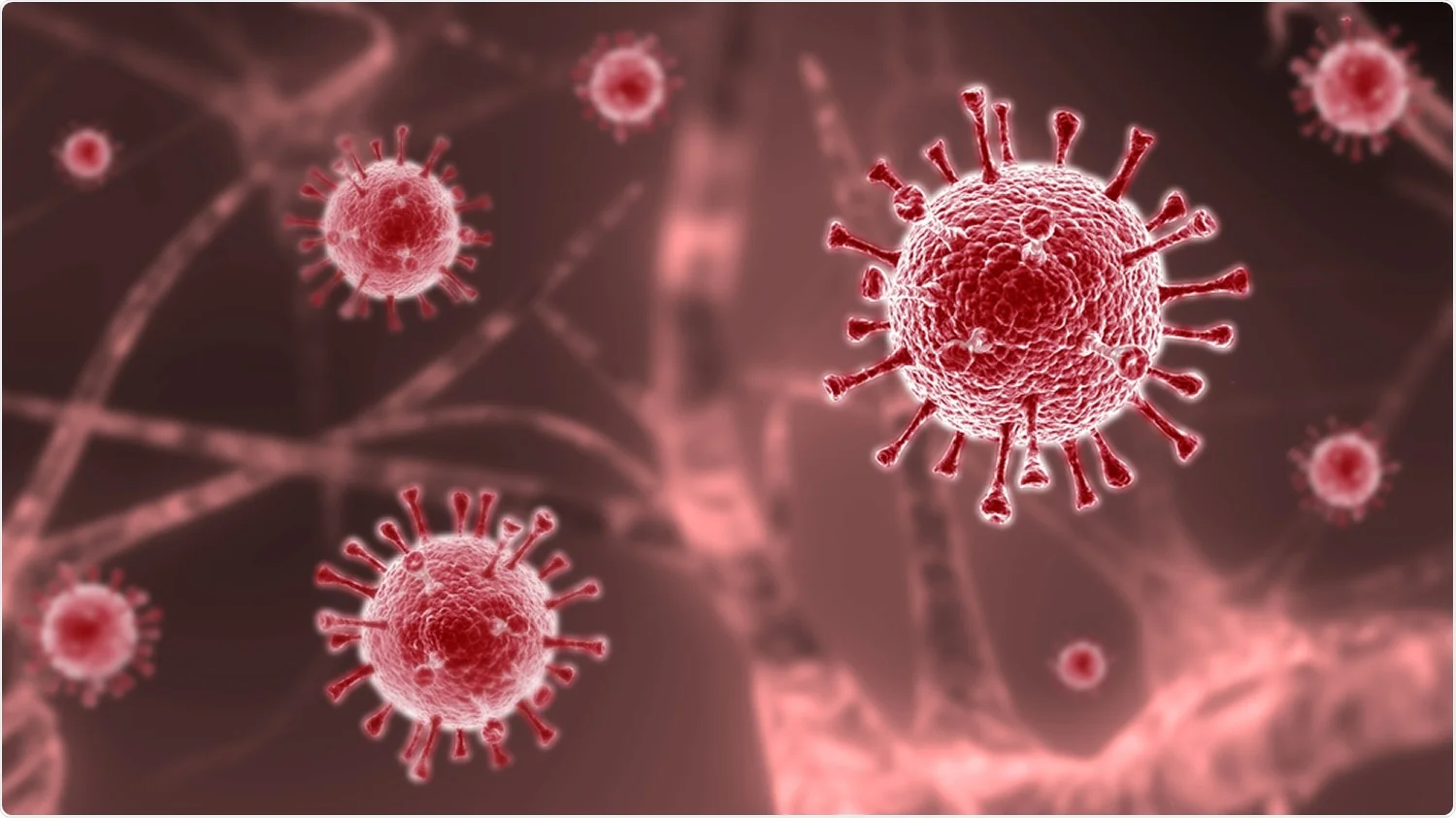The Delta variant, initially identified in India, has since spread to numerous countries, becoming a dominant strain in many regions. Its rapid spread has raised concerns among health professionals and the general public alike.
As with any evolving virus, understanding its symptoms is crucial for early detection and effective management.
Origins and Spread

First detected in October 2020, the Delta variant has mutations in the spike protein, which the virus uses to enter human cells. This has led to its increased transmissibility compared to earlier strains.
By mid-2021, it had become the dominant strain in many countries, leading to a surge in cases and hospitalizations.
Why It’s Concerning
The Delta variant’s ability to spread more easily is not its only concerning feature. Preliminary studies suggest that it might partially evade immunity from previous infections or vaccinations.
However, vaccines still offer significant protection against severe disease and hospitalization caused by this variant.
Recognizing the Symptoms
Recognizing the symptoms of the Delta variant is the first step towards its management. While many symptoms overlap with previous strains, some differences have been noted.
Common Symptoms

First of all, we have to mention that it is crucial to never try to determine a condition on your own if you are not a specialist.
An even worse decision is to research the internet and make a speculation only according to that. The right approach is to consult with doctors. You can check out some online sources, but only to get an insight into the main features of the Delta variant.
The team of experts from Larkin Community Hospital made a detailed research on this variant, and how it is different from other types of COVID. Here is one of their statements:
“The Delta variant also causes more severe disease and is less susceptible to vaccines than previous lineages. The symptoms resemble the common cold such as rhinorrhea, fever, and pharyngitis, and it is less likely to cause loss of smell when compared with other variants such as the alpha variant. Several countries have reported that the Delta variant has a significantly higher risk of hospitalization, ICU admission, developing pneumonia, and about 137% greater risk of death compared to non-variant SARS-CoV-2. “
Differences from Previous Strains
While cough and loss of smell were hallmark symptoms of the original strain, they seem to be less common with the Delta variant. Instead, headache, sore throat, runny nose, and fever are more prevalent. It’s essential to note that symptoms can vary widely among individuals, and not everyone will experience the same set of symptoms.
Impact on Vaccinated Individuals

Vaccination has proven to be our best defense against COVID-19. But how does the Delta variant affect those who are vaccinated? We have to add that it was not a rare case that people rejected to get vaccinated for various reasons, including religious ones.
Breakthrough Infections
While breakthrough infections (infections in vaccinated individuals) can occur with the Delta variant, they are infrequent. Most breakthrough cases are mild, thanks to the protection offered by vaccines. However, it’s crucial to continue practicing safety measures, even if vaccinated.
Severity of Symptoms in Vaccinated Individuals
Vaccinated individuals who contract the Delta variant tend to have milder symptoms than those who are unvaccinated. Common symptoms in vaccinated individuals include headache, runny nose, and sore throat. Severe symptoms like shortness of breath are less common in this group.
Protecting Yourself and Others
In the face of the Delta variant, it’s more important than ever to take precautions to protect yourself and those around you.
Vaccination

- Get vaccinated if you haven’t already.
- Encourage friends and family to get vaccinated.
- Stay updated on booster shots or additional doses.
Vaccination remains the most effective way to prevent severe disease, hospitalization, and death from the Delta variant.
Safety Measures
- Wear masks in crowded places.
- Practice good hand hygiene.
- Maintain physical distance when possible.
The Importance of Testing and Early Detection
Early detection of the Delta variant can significantly reduce its spread and ensure timely medical intervention for those affected. Testing remains a cornerstone in the fight against this formidable strain.
Types of Tests Available
- PCR Tests: Considered the gold standard, these tests detect the virus’s genetic material and are highly accurate.
- Rapid Antigen Tests: These provide results faster than PCR tests but may not be as accurate. They detect specific proteins from the virus.
- Antibody Tests: While not used for active infections, these tests can determine if someone had a past infection.
Benefits of Early Detection
Early detection can:
- Prevent the spread to vulnerable individuals.
- Ensure timely medical care, reducing the risk of complications.
- Help in contact tracing, isolating potential carriers before they spread the virus further.
The Global Response
The emergence of the Delta variant has prompted a swift and coordinated global response, with countries ramping up their efforts to curb its spread.
Travel Restrictions and Border Controls
Many countries have implemented strict travel restrictions, especially from regions with high Delta variant cases. Quarantine measures, mandatory testing, and travel bans are some of the strategies employed.
Research and Data Collection
Continuous research is being conducted to understand the Delta variant better. Data collection on its spread, impact on vaccinated individuals, and effectiveness of current vaccines against it is ongoing. This research is crucial for adapting strategies and ensuring they remain effective.
Public Awareness Campaigns
Governments and health organizations worldwide have launched public awareness campaigns to educate people about the Delta variant. These campaigns emphasize the importance of vaccination, mask-wearing, and other preventive measures.
The Role of the Community
While governments and health organizations play a significant role, the community’s role in combating the Delta variant cannot be understated.
Community Vaccination Drives
Local communities have been instrumental in organizing vaccination drives, ensuring that everyone, including those in remote areas, has access to vaccines.
Support Systems
Communities have come together to support those affected by the virus, be it through providing essentials, mental health support, or resources for home care.
Spreading Accurate Information
In an age of misinformation, community leaders and influencers play a crucial role in disseminating accurate information about the Delta variant, dispelling myths, and encouraging preventive measures.
The Possibility of New Breakthroughs and Lockdowns

The global battle against COVID-19 has been marked by waves of infections, breakthroughs in understanding the virus, and the implementation of lockdowns to curb its spread. As the pandemic evolves, the looming question remains: What are the chances of facing new breakthroughs and potential lockdowns?
The Ever-Evolving Nature of the Virus
Viruses, by their very nature, mutate over time. These mutations can lead to new variants, some of which may have increased transmissibility or virulence. The Delta variant, for instance, showed the world how a more contagious strain could lead to a surge in cases, even in regions where the original strain had been largely controlled.
As long as the virus continues to circulate, the possibility of new variants emerging remains. Some of these variants could potentially evade immunity from previous infections or vaccinations, leading to what are termed “breakthrough infections.”
While vaccines have proven effective against severe disease and hospitalization, no vaccine offers 100% protection, making breakthroughs a reality to contend with.
The Global Response and the Potential for Lockdowns
The global response to new variants or surges in cases has varied. Some countries have opted for stringent lockdowns, while others have chosen more targeted measures.
The decision to implement lockdowns often hinges on several factors: the healthcare system’s capacity, the rate of vaccination, public compliance with safety measures, and the economic implications of such restrictions.
While lockdowns have proven effective in reducing the spread of the virus, they come with significant economic, social, and mental health costs. As more people get vaccinated and treatments improve, the hope is that future surges can be managed without resorting to widespread lockdowns.
However, the unpredictability of the virus means that the possibility of localized or even broader lockdowns cannot be entirely ruled out.
Preparing for the Future
The lessons learned from the COVID-19 pandemic underscore the importance of preparedness. Investing in robust healthcare infrastructure, ramping up vaccine production and distribution, and fostering global cooperation are crucial steps in preparing for potential future outbreaks.
Public health campaigns emphasizing the importance of vaccination, mask-wearing, and other preventive measures will also play a pivotal role in curbing the spread of the virus.
While the hope is that widespread lockdowns will become a thing of the past, the world must remain vigilant and adaptable, ready to respond to the ever-evolving challenges posed by the virus.
FAQs
How does the Delta variant differ from the original strain of the virus in terms of genetic makeup?
The Delta variant has specific mutations in its spike protein, which the virus uses to enter human cells. These mutations are believed to increase its transmissibility and may also impact its ability to evade immunity from previous infections or vaccinations.
Are children and young adults more susceptible to the Delta variant than they were to the original strain?
While children and young adults were generally less affected by the original strain, there have been reports of increased cases among these age groups with the Delta variant. However, severe outcomes remain rarer in younger populations compared to older adults.
How effective are the current COVID-19 vaccines against the Delta variant?
Current vaccines, especially after the full dosage, have shown to be effective in preventing severe disease, hospitalization, and death caused by the Delta variant. However, their efficacy in preventing infection or mild symptoms might be slightly reduced compared to earlier strains.
Is there a possibility of even more contagious or virulent variants emerging in the future?
Yes, as long as the virus continues to spread and replicate, there’s a possibility of new variants emerging. Some of these could be more contagious, virulent, or both. It underscores the importance of global vaccination efforts to reduce the virus’s spread and chances of mutation.
Summary
The Delta variant has posed new challenges, but with a coordinated global response, community involvement, and individual responsibility, we can overcome this hurdle. It’s a reminder of the ever-evolving nature of viruses and the importance of staying informed and prepared. As we continue to adapt and learn, our collective efforts will pave the way for a world better equipped to handle such challenges in the future.
